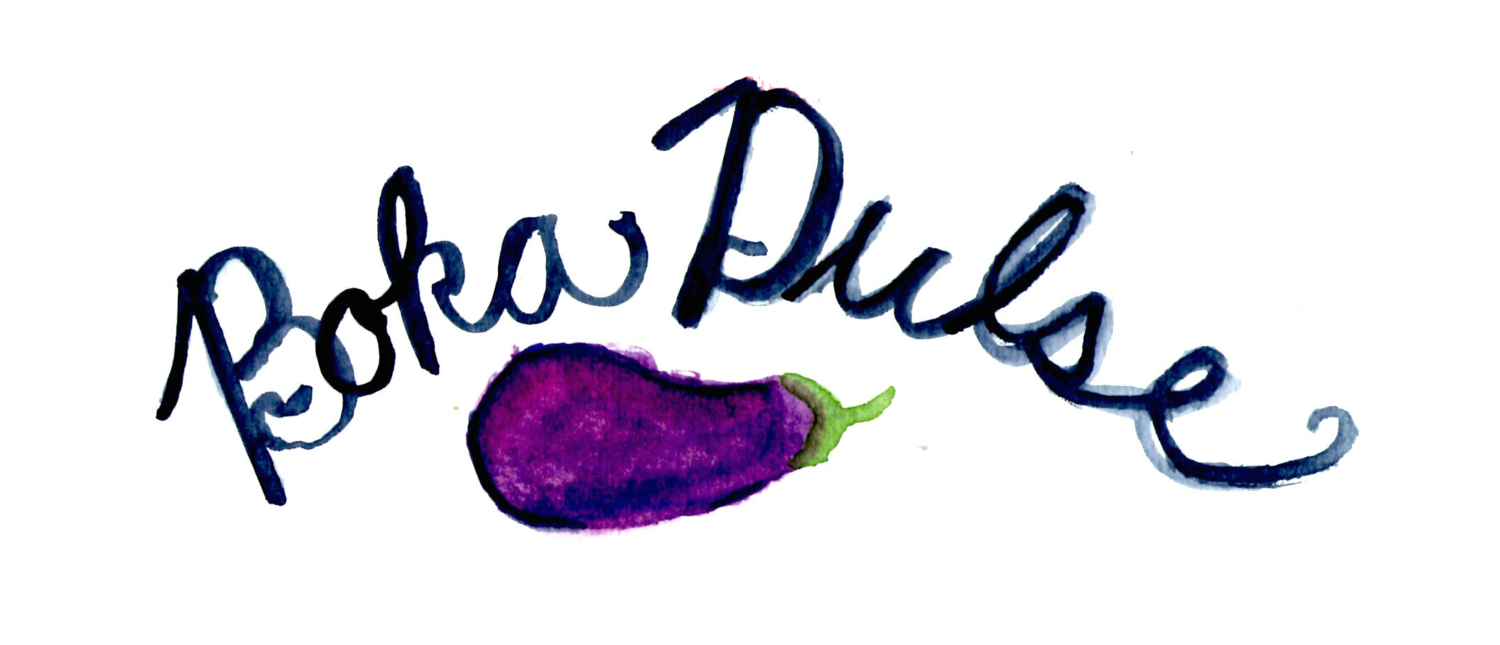Bienvenidos a Boka Dulse! | Welcome to Boka Dulse!
This is a blog that’s all about the exploration and celebration of food history and culture. In Ladino (and in Spanish, though it’s spelled slightly differently – as boca dulce) boka dulse literally means “sweet mouth.” This phrase comes from a well-known saying in Ladino, the language of the (mostly Ottoman) Sephardic Jews (read about who they are here) that goes boka dulse avre puertas de fierro, which in English translates to “sweet words open iron gates.” Traditionally, Sephardic mothers and grandmothers (who were most often the main keepers of Sephardic culture) would say this refrain, or refrán, to encourage and commend good behavior (as well as condemn bad behavior too). According to the Diccionario Akal del Refranero Sefardí, a dictionary dedicated to the preservation and explanation of Sephardic proverbs and sayings, “one says” the refrain “to suggest that more is often achieved with kind words than with forceful ones [se dice para significar que muchas veces se conigue más con buenas palabras que pretendiendo imponerse por las bravas]” (pg. 51, my translation). My interpretation: be kind and you’ll go farther.
Borekas, stuffed pastry turnovers, finished with sesame seeds and packed to go.
Now you may ask: what does a saying in a medieval language have to do with this foodblog? My answer: why, everything. Besides this proverb summing up perfectly my philosophy of life, it also captures exactly my philosophy around food too: that a great deal of good can be achieved if it happens over a great plate of food. (Desserts don't hurt either.)
The name Boka Dulse also implies the Sephardic roots of this blog. Though I am of Ashkenazi (Eastern-European) Jewish heritage, the majority of my academic research at Tufts University focused on the culinary heritage and cultural identity of the Sephardic Jews. The Sephardic Jewish community was expelled from Spain in 1492 and dispersed into a far-reaching diaspora; in many ways, the dishes of the Sephardim (as they are also known) in the places they settled reveal a great deal about their experience in that location. Through those dishes, you can see how the Sephardic community simultaneously shaped and was influenced by their new surroundings – as well as whether or not its relationship with the Sephardim’s new host community was a happy one. On this blog, you'll find many Sephardic recipes and histories (as I'm most knowledgeable about Sephardic culture), but you'll also find dishes and stories from various cultures and communities across the globe.
A shared plate of homemade couscous in the Moroccan Rif Mountains.
My research clued me in to the ways that food does so much more than nourish our bodies - it helps cultivate our identity and self-perception, especially in relation to the diverse communities to which we belong and with which we interact. Our food tells the story of who we are and how we exist in the world, so I wanted to create an online space to tell (and of course taste!) those stories. That's another level of the name’s significance: I’m not simply providing you with the histories of the people and the communities that make these dishes, but I also want to give you the opportunity to make and taste them in your own kitchen, with your own boka. So, in every post you’ll find a story and a recipe, one that I’ve tested and tailored to be more compatible with the modern kitchen. By preparing and eating these dishes, you'll be able to interact and enjoy these traditions on a tangible level - in hearing the exciting sizzle of a hot pan, in feeling the comforting, aromatic steam billowing from a stewpot, as well as in seeing the delighted looks of dinner guests when a just-finished dish is placed on the table.
Homemade cinnamon-sugar challah ready in time for Shabbat, the Jewish day of rest.
I created this blog to be a celebration: of family, of community, of people coming together to share a plate of really delicious food. I want it to be a hopeful space, one that inspires you with the personal stories and narratives that every dish and ingredient represents as much as the flavors and ingredients they contain.
My mother's beautiful Thanksgiving table.
And that’s where the dulse—the sweetness—comes in. Because I believe that we share so much more than nutrients when we make and eat food together; rather, we give of ourselves. Every time we partake in communal meals, we bring together all the different stories and histories – in short, the identities – that our food represents. In that way, a meal is more than an excuse to eat: it’s an edible, enjoyable microcosm of peaceful coexistence.
That’s why this blog is called Boka Dulse: it is my way of showing that through sharing sweet words and even sweeter (read: generally delicious – no discrimination against the savory here) food, we can more easily transcend whatever iron gates – literal and figurative – that work to separate us. I hope that they are words and tastes that find their way into your kitchen too, dear reader.
And now – vini gizaremos: let’s cook!
The spread of dishes that represented the chapters of my senior thesis: borekas, almodrote, huevos haminados, keftes de prasa, adafina, and dulse de mansana.






